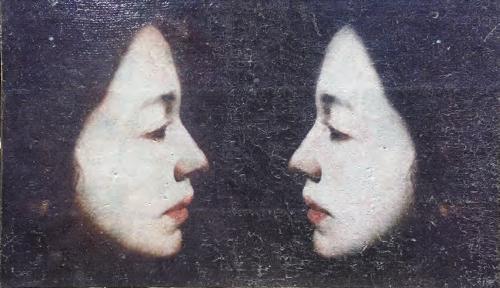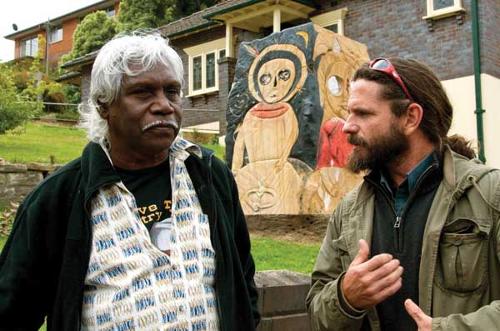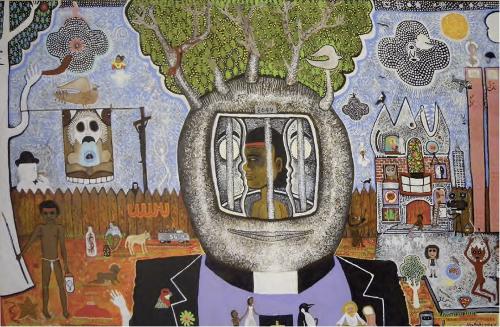Ulli Beier (1922-2011)
I remember a Yoruba saying that Ulli often quoted: "If an old man dies, you shall not weep but congratulate his family for that his life has come full circle." Ulli Beier died on 3 April 2011 at 88 years old in Sydney. Ulli was a very important teacher, mentor and spiritual inspiration. It was a wonderful privilege to know this outstanding man and work, laugh, dine and drink with him.
Born in Germany in 1922, Ulli came to Nigeria in 1950,with his wife, the renowned Austrian artist and later high priestess of the Osun Groove in Oshogbo, Suzanne Wenger. He joined the University College Ibadan and travelled widely across Yoruba country, visiting many towns and villages and organising English literature classes for willing participants. After living in Ede and Ilobu, Ulli settled in Oshogbo in 1958, where he continued to eagerly learn about Yoruba arts and culture. He took part in Yoruba everyday and ritual life, collected stories and took photographs. In subsequent years he wrote a great number of articles and books on Yoruba culture.
In 1957 he founded Black Orpheus, a literary magazine that was to become a most important journal, not only in Nigeria, but in Africa and the black world. It was in this magazine that many of the continent's leading writers such as Wole Soyinka, Chinua Achebe, John Pepper Clark, the late Christopher Okigbo and others were first published
Ulli later co-founded, with Duro Ladipo, the legendary Mbari-Mbayo Artists and Writers Club in Ibadan which helped many an artist and writer of the time to get recognition. Some might remember that he wrote several texts, even plays, under the pseudonym Obotunde Ijimere. In the early sixties he was appointed Director of the Institute of African Studies at the University of Ife. Together with his second wife, Georgina Beier, he organised dozens of art workshops in Oshogbo with artists such as Twins Seven Seven, Muraina Oyelami, Rufus Ogundele, Bisi Fabunmi or Jimoh Buraimoh.
In the seventies he was asked to found an Institute of Papua New Guinea Studies. After buying a house in Sydney and opting for Australian citizenship, he accepted the call in 1974. There he co-organised, with Georgina, the country’s first art exhibitions featuring artworks by Timothy Akis and Matias Kauage. Ulli then created the literary periodical Kovave: A Journal of New Guinea Literature, with works by Papua New Guinean artists. His efforts were equally significant in the emergence of Papua New Guinean literature. While in Papua New Guinea he encouraged Albert Maori Kiki to record his autobiography, which Beier transcribed and edited. The book Ten Thousand Years in a Lifetime was one of the first literary works of a Papua New Guinean.
Ulli returned to Germany in the early 80s to found IWALEWA Haus a centre for contemporary arts, mainly from Africa and Oceania, and part of Bayreuth University, while remaining faithful to his many friends in Africa, Australia, India, the Pacific and other parts of the world who frequently visited the Haus. It was a very fruitful time for him, publishing over 100 brochures, articles, and books and curating dozens of exhibitions, workshops and concerts. He enabled hundreds of people from different cultural backgrounds to get to know each other, work together, overcome prejudices. Thousands of visitors and guests have benefited from Ulli’s work.
In 1995 and again in 1997 he was invited by Epeli Hau’ofa to take up the position of a guest professor at the University of the South Pacific in the then newly founded Oceania Center for Arts and Culture. With Georgina, he spent his last years in his house Sydney, writing and publishing.
My thoughts are with Georgina and his sons Sebastian and Tunji.












